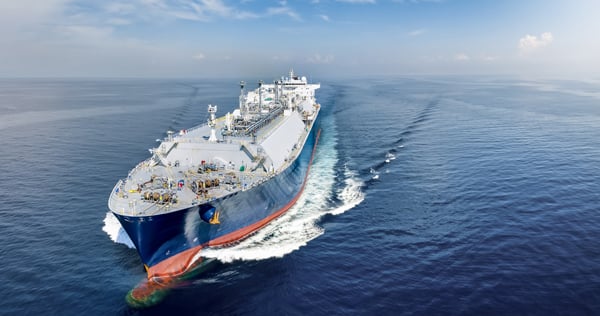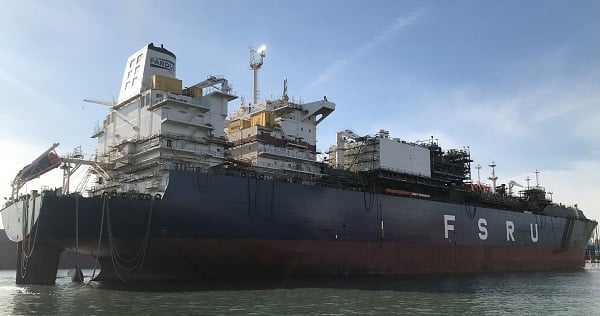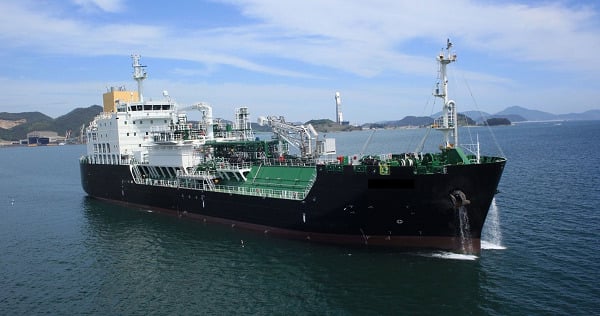LNG Vessel Management
LNG Vessel Types in Our LNG Vessel Management
We have a strong track record in the management of various types of LNG vessels including FSU, FSRU, and LNG Bunkering Vessel.
 |
LNG Carriers We provide efficient and comprehensive technical management solutions for all types of LNG carriers. |
 |
FSRU We have an excellent safety track record in managing complex and modern FSRUs. |
 |
LNG Bunker Vessel We have the competency to manage highly complex LNGBVs for ship-to-ship fuel transfers. |
Reasons to Choose Our LNG Vessel Management
LNG vessels managed by us are maintained to the highest standards by our in-house team of LNG experts, driven by the aim of greater operating efficiency and commercial success without compromising on safety and quality.
Our updated Tanker Management & Self-Assessment (TMSA) is reviewed by various oil majors. We strive to maintain excellence in our vessel performance SIRE inspections. As a progressive ship manager, we adopt the mindset to continuously improve our processes and systems to create a safe and efficient environment onboard that supports our crew.
In addition to technical operations, we are specialists in the following related LNG processes:
- Safe and efficient loading of LNG coolant in different scenarios
- Life Extension studies and implementation thereof
- Preparation of vetting inspections by continuous engagement with ship staff and also by conducting pre-vetting sailing visits
- FSU & FSRU conversion, new build, and management
We are a member of:
![]()
We are a full member of the Society of International Gas Tanker and Terminal Operators Ltd. (SIGTTO), working together with the largest industry players to implement best practices across the gas shipping and terminal industries.

As part of The Society For Gas as a Marine Fuel (SGMF), we join forces with other members to encourage the safe and responsible operations of vessels using LNG as fuel and promoting marine activities relating to the supply of LNG used for fuel.
FAQs regarding LNG Ship Management and LNG Vessel
What is LNG vessel management?
LNG vessel management encompasses the safe, efficient, and profitable operation of Liquefied Natural Gas (LNG) carriers throughout their lifecycle. It covers everything from crewing and technical maintenance to cargo operations, voyage planning, compliance with regulations, and maximizing commercial outcomes. Skilled professionals ashore and at sea work together to ensure smooth deliveries, optimal performance, and minimal environmental impact, all while prioritizing safety as the topmost priority.
What are the benefits of outsourcing LNG vessel management to a ship management company?
Some of the key benefits of outsourcing LNG vessel management to a ship management company include:
- Cost Reduction: Ship management companies benefit from economies of scale, allowing them to negotiate better deals on crew wages, insurance, and maintenance. They also have the expertise to optimize fuel consumption and operational efficiency, ultimately reducing your expenses.
- Enhanced Expertise: Managing LNG vessels requires a diverse skillset, including navigational proficiency, regulatory compliance, technical knowledge, and marine management. Ship management companies employ specialists in these areas, ensuring your vessel is in capable hands with access to broader expertise than you might build internally.
- Increased Operational Efficiency: Ship management companies have established networks and relationships with ports, authorities, and service providers globally. This translates to smoother port calls, faster turnaround times, and improved cargo handling, ultimately enhancing your operational efficiency and potentially boosting revenue.
- Reduced Administrative Burden: Outsourcing frees you from the administrative headaches of crew management, payroll, compliance, and risk mitigation. This allows you to focus on your core business while the ship manager takes care of the day-to-day operational complexities, simplifying your workload and potentially freeing up resources for strategic initiatives.
What is a LNG vessel?
According to Wikipedia, an LNG vessel, also known as an LNG carrier, tanker, or ship, is designed to transport liquefied natural gas across vast distances. Think of them as colossal thermos flasks, maintaining the LNG Cargo Condition at a frigid -162°C by utilizing the Natural Boil Off for Vessel Propulsion, Power Generation and / or reliquefied to enable efficient shipping. These giants boast multiple insulated tanks, resembling a futuristic cityscape on the ocean, where the precious LNG cargo rests. Their size varies, with some carrying enough gas to fill 70,000 cars' tanks!
What is the difference between LNG and LPG vessels?
The LNG and LPG vessels are crucial players in the world of natural gas transportation, but these gas carriers navigate different seas with distinct cargo. Here's a quick breakdown:
LNG Vessels:
- Cargo: Liquefied Natural Gas (LNG), primarily methane, chilled to a frigid -162°C to liquefy it and thereby reducing its volume by 600 times.
- Tanks: Multiple large, insulated cargo tanks resembling a futuristic cityscape on the ocean, providing safe and efficient storage for the ultra-cold LNG.
- Size: Giants of the seas, with some LNG vessels capable of carrying enough gas to fill the tanks of 70,000 cars!
- Purpose: Long-distance transportation of LNG across oceans, supplying energy to regions far from production sites.
LPG Vessels:
- Cargo: Liquefied Petroleum Gas (LPG), a mix of propane, butane, and other hydrocarbons, cargo temperature up to -46 degrees.
- Tanks: Prismatic tanks designed to handle cryogenic cargo at boiling point.
- Size: More diverse range, from very large gas carriers (84000 Cu) to midsize gas carriers. (35400 Cu).
- Purpose: Worldwide transportation and regional distribution of LPG for various uses, including cooking fuel, heating, power generation and industrial applications.
How safe are LNG ships?
According to Marine Insight, LNG (Liquefied Natural Gas) ships are designed with multiple safety features to meet high standards of safety and reliability of transport LNG. The gas in liquid form is stored in double-hulled tanks with advanced insulation to maintain low temperatures and prevent leaks. Additionally, rigorous safety standards and regulations are in place to govern LNG ship construction and operation. Emergency shutdown systems, fire suppression / gas leakage detection measures, and comprehensive training for crew members further enhance safety. While accidents are rare, the consequences of a potential incident can be severe, and continuous advancements in technology and safety protocols are implemented to ensure the overall shipping safety of the global LNG shipping fleet.
What fuel does LNG ships use?
LNG (Liquefied Natural Gas) tankers have traditionally utilized steam turbines powered by boilers for propulsion. However, vessels today primarily use two-stroke marine diesel engines and electric propulsion with dual-fuel four-stroke marine diesel generators to produce the necessary high-voltage electric power, due to higher fuel efficiency and reduced methane slip.
These propulsion systems are designed as dual-fuel systems, utilizing natural/forced, boil-off gas (from LNG cargo) or fuel/distillate oils, and sometimes a combination of the two. The flexibility to use either fuel allows for operational versatility and adaptability to different environments. A notable aspect is the utilization of boil-off gas (BOG), which is natural gas that evaporates from LNG cargoes. Instead of venting the excess boil-off gas into the atmosphere, it is typically diverted to boilers or engines and used as supplemental ship fuel. This practice helps minimize greenhouse gas emissions while improving the efficiency and sustainability of LNG tankers.
If you are interested in learning more about our LNG vessel management, please contact us today. We would be happy to discuss your specific needs and look forward to partnering with you.